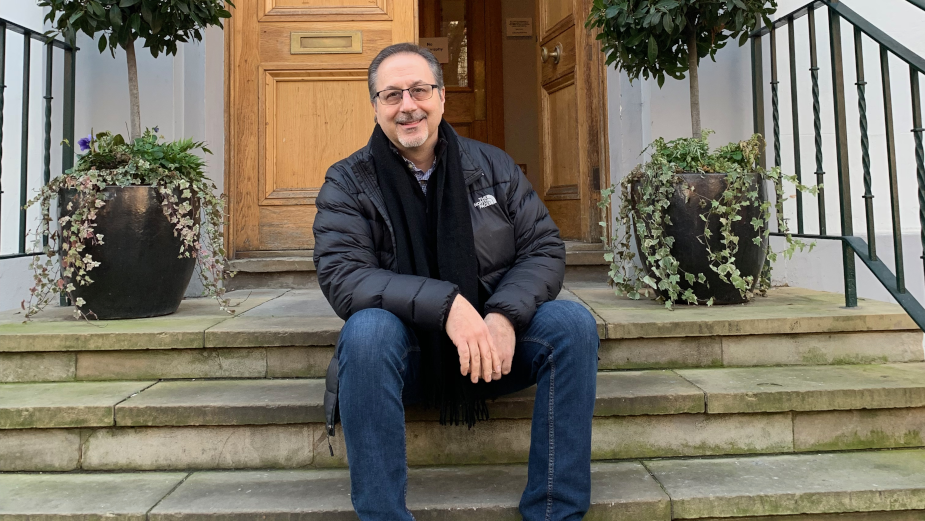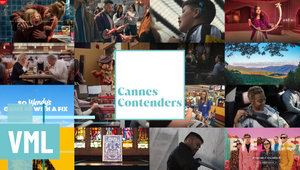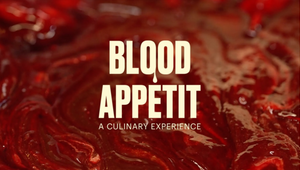
Thinking In Sound: Why Paul Greco Is Listening with an Open Mind

Paul Greco is executive director of music and audio production at global ad agency Wunderman Thompson North America. He was appointed in 2011 to lead the agency’s (formerly J. Walter Thompson) music department and collaborate on music branding ideas across all media. Today his work continues to be recognised across the industry.
Paul’s musical direction has made a major impact on many major brands throughout his career and many of Wunderman Thompson’s most prestigious brands.
He is a board member of The Association of Music Producers (AMP) and was chosen as Chair for the 2015 AMP Awards.
LBB> When you’re working on a new brief or project, what’s your typical starting point? How do you break it down and how do you like to generate your ideas or response?
Paul> The first thing I want to know from my creative directors is “What do they want to feel?” The emotional takeaway is the biggest clue for me to deliver what they want back. Are we creating a track from scratch or are we looking for an existing track, and if it’s an existing track what is the benefit of that for this project? Also, what is the budget?
LBB> Music and sound are in some ways the most collaborative and interactive forms of creativity - what are your thoughts on this? Do you prefer to work solo or with a gang - and what are some of your most memorable professional collaborations?
Paul> Working solo is counterproductive, in my opinion. Advertising is a team sport. You need to take in the thoughts and opinions of the team and use those to help deliver the best music solution, but I’ll do that while taking the lead on music production because I’m the expert in that space.
One of the best experiences I’ve had was working with our agency creative team and our composers for the Rolex '#perpetual' campaign several years ago. It was some of the best music I ever produced and I was honoured to be able to record it with the Royal Philharmonic Orchestra at Abbey Road Studios in London.
LBB> What’s the most satisfying part of your job and why?
Paul> 1) Helping to bring a creative idea to life with the aid of music and 2) when I’m able to be in a studio recording music with composers and live musicians. There is nothing more gratifying for me.
LBB> As the advertising industry changes, how do you think the role of music and sound is changing with it?
Paul> More and more I see brands wanting to use music’s ability to connect with their audiences. More thought is going into sonic branding, resurrecting jingles from years past, music experiences, etc. And how will we use music in the metaverse? That will be the next frontier. Brands are also coming back to radio and expanding into podcasts. Music and audio are in a growth stage.
LBB> Who are your musical or audio heroes and why?
Paul> There are so many, but top tier would be The Beatles and George Martin for their timeless song writing and fearlessness in the studio, along with Stevie Wonder and Pete Townsend of The Who - for really the same reasons.
LBB> And when it comes to your particular field, whether sound design or composing, are there any particular ideas or pioneers that you go back to frequently or who really influence your thinking about the work you do?
Paul> I often refer back to my days of working in recording studios, recording music and voiceovers. So many of the things I learned then I often use when I’m working today. I’ve had the good fortune to learn some of the best audio engineers, composers, musicians, and producers in the business over my time in this industry – as well as musicians like Paul Shaffer, Will Lee, Steve Gadd, Michael Brecker and dozens more that have played on hundreds of records.
LBB> When you’re working on something that isn’t directly sound design or music (lets say going through client briefs or answering emails) - are you the sort of person who needs music and noise in the background or is that completely distracting to you? What are your thoughts on ‘background’ sound and music as you work?
Paul> If it’s a mundane task, then I enjoy music in the background, but if it requires deep thought, sometimes just having it quiet is better so I can 'search my brain' without distraction. I think background sound and music is fine if it doesn’t distract you from the task at hand.
LBB> I guess the quality of the listening experience and the context that audiences listen to music/sound in has changed over the years. There’s the switch from analogue to digital and now we seem to be divided between bad-ass surround-sound immersive experiences and on-the-go, low quality sound (often the audio is competing with a million other distractions) - how does that factor into how you approach your work?
Paul> It’s hard to compensate for certain media once it leaves the final mix. Unless we have to final mix for a specific venue or media, we just try to make it sound as great as it can to the specs we are given.
LBB> On a typical day, what does your ‘listening diet’ look like?
Paul> No day is typical. My listening depends on what is driving me that day. Chances are I’ll start with my favourite, classic R&B and soul: Marvin Gaye, Stevie Wonder, and Aretha Franklin and then it will move from there to something completely different like Led Zeppelin, The Beatles, Anderson Paak, Vulfpeck, or The Struts. It really all depends on the day and my frame of mind. I also like listening to film score soundtracks, especially those by Alexandre Desplat, Thomas Newman, Bernard Herrman, and John Williams.
LBB> Do you have a collection of music/sounds and what shape does it take (are you a vinyl nerd, do you have hard drives full of random bird sounds, are you a hyper-organised spotify-er…)?
Paul> I have some vinyl and still have lots of CD’s and have many thousands of mp3’s, and a robust Spotify account. I do also have a good and basic sound effects library if I’m ever asked to do some last-minute sound design and mixing.
LBB> Outside of the music and sound world, what sort of art or topics really excite you and do you ever relate that back to music (e.g. history buffs who love music that can help you travel through time, gamers who love interactive sound design… I mean it really could be anything!!)
Paul> I love old movies (especially Hitchcock) and I am always amazed at the craft of creating music for films. I love the way a musical score can elevate a film’s story and characters.
LBB> Let’s talk travel! It’s often cited as one of the most creatively inspiring things you can do - I’d love to know what are the most exciting or inspiring experiences you’ve had when it comes to sound and music on your travels?
Paul> I love going to different places and experiencing their music scene. Great local musicians all around and music everywhere. I stop and listen to street musicians whenever I come across them. I was impressed by some local jazz artists when I recently stayed in Montreal, and was thrilled to experience local musicians in Italy including an Italian country music band… they were very good!
LBB> As we age, our ears change physically and our tastes evolve too, and life changes mean we don’t get to engage in our passions in the same intensity as in our youth - how has your relationship with sound and music changed over the years?
Paul> I am open to more experiences than I was. When I was younger, I was less interested in bands or musical styles that I didn’t understand. Listening with an open mind has allowed me to experience more and enjoy things that I never would have given a chance in the past.















